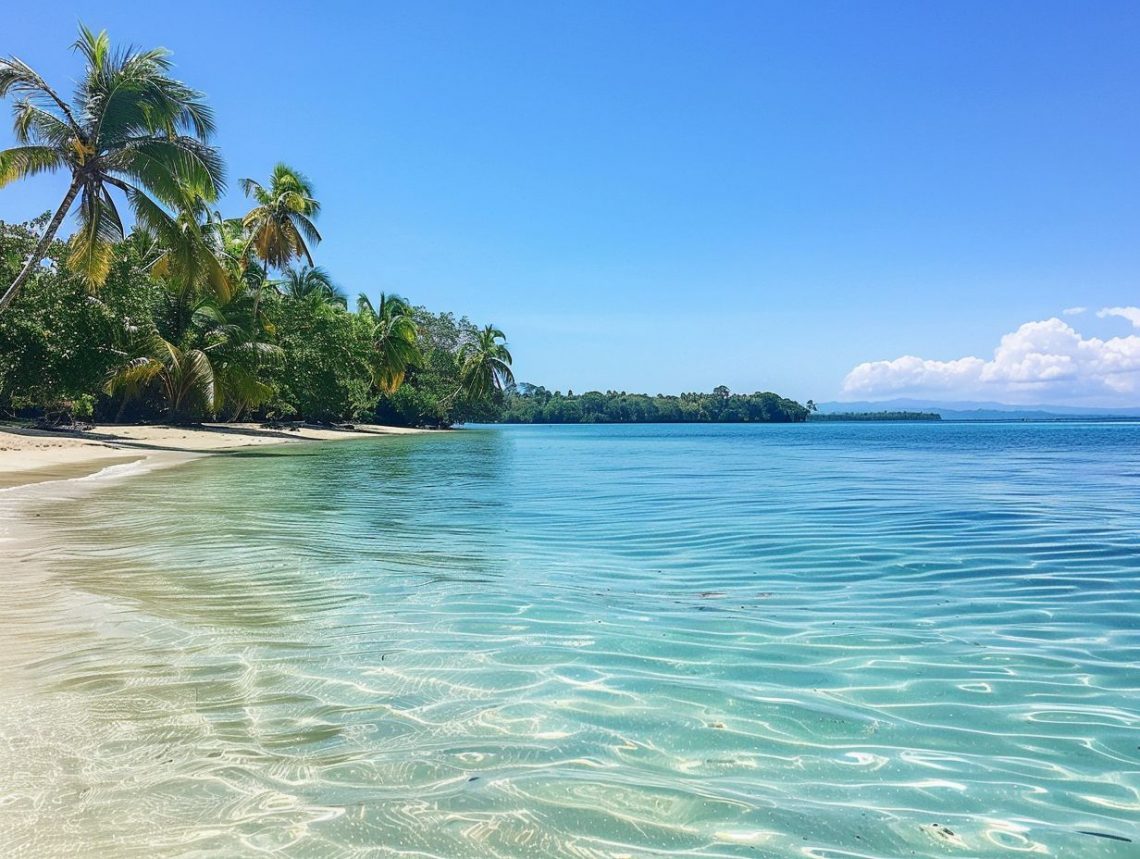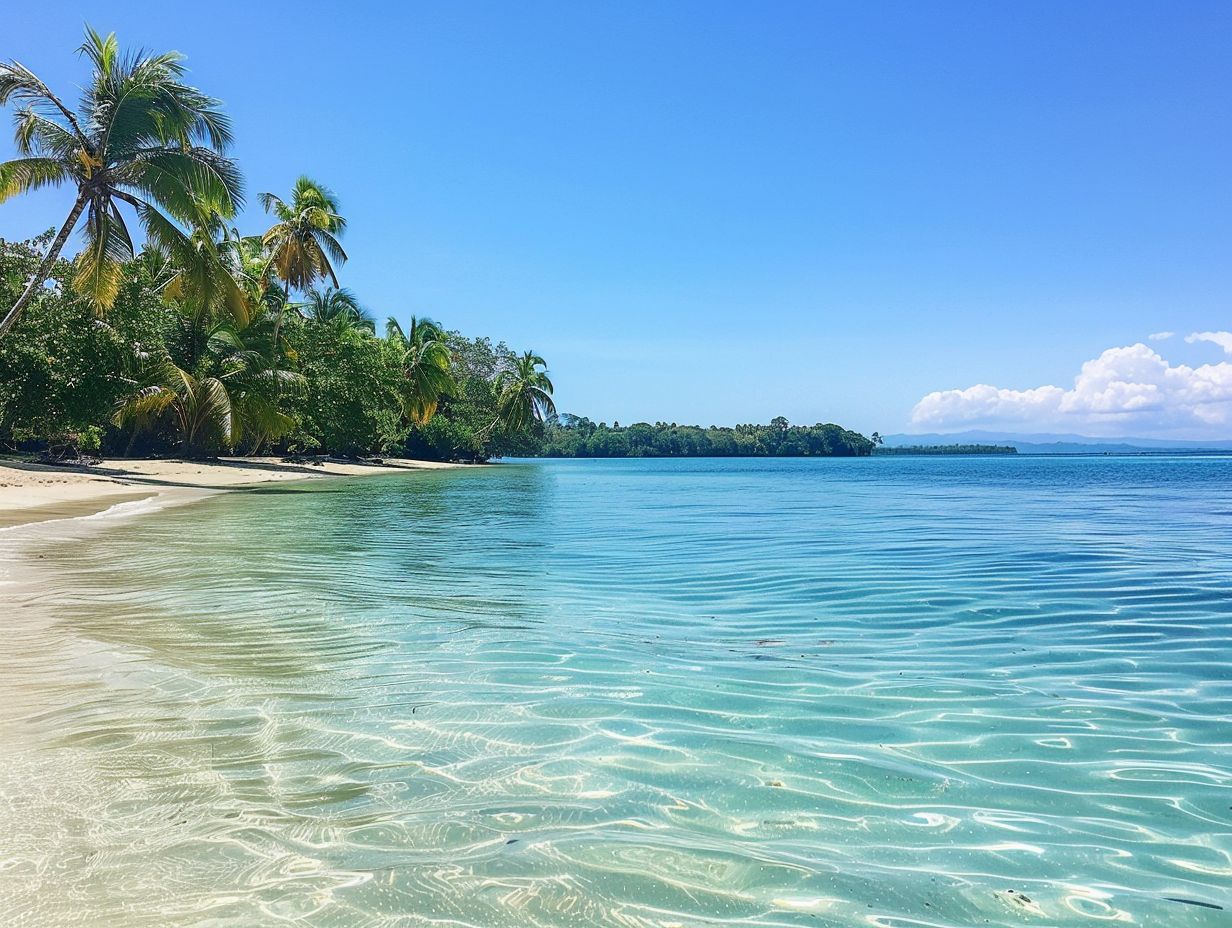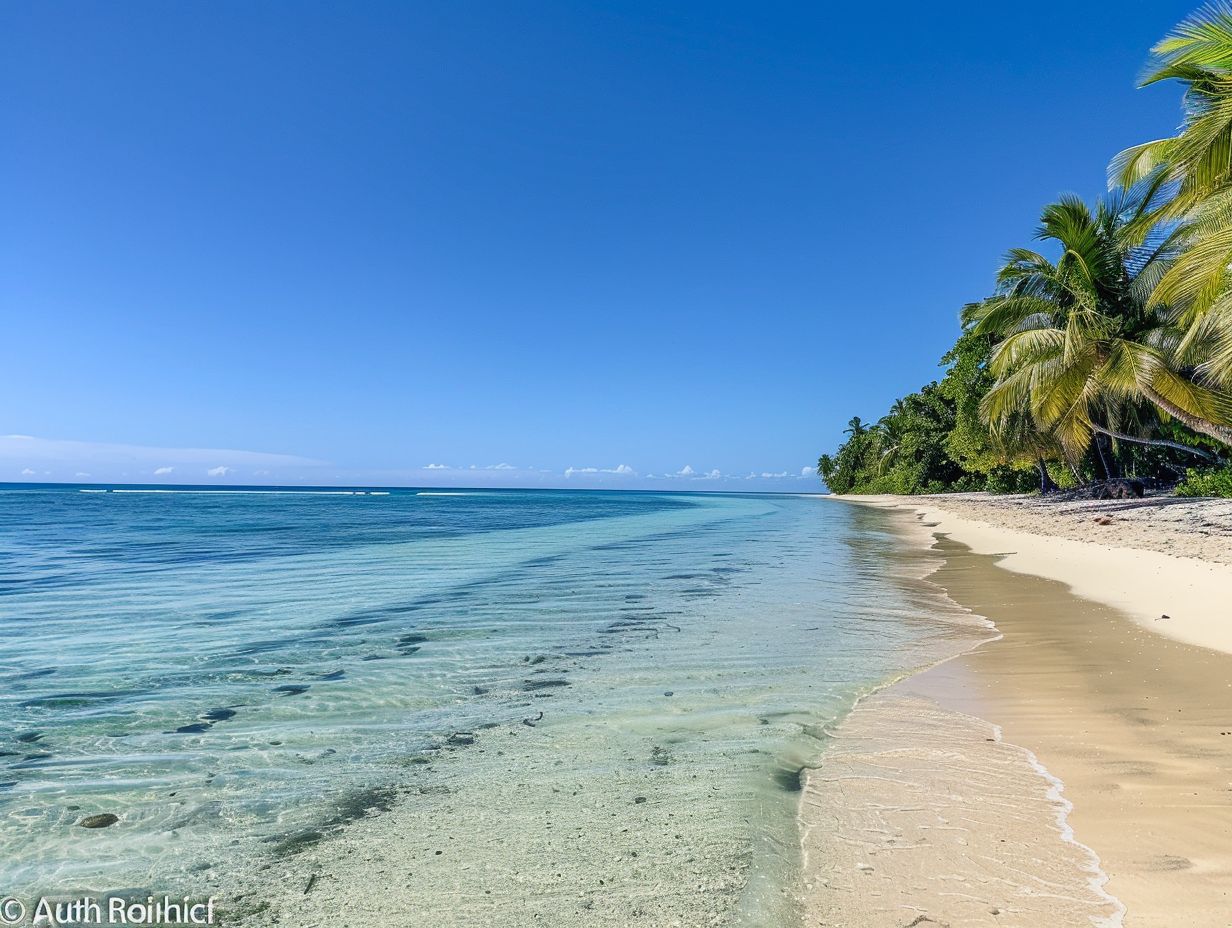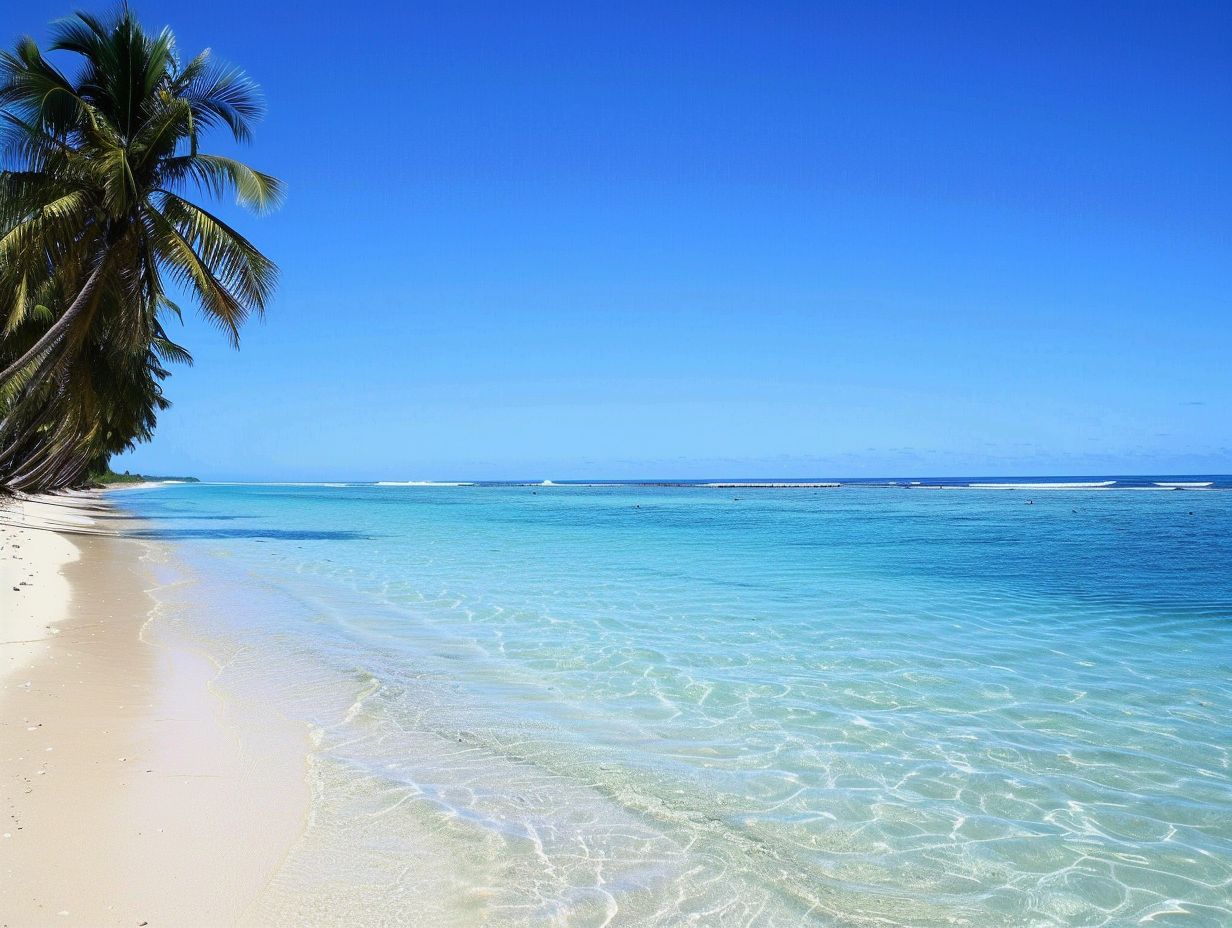
Best Time To Visit Zanzibar
Planning a trip to Zanzibar?
Choosing the best time to visit this stunning island paradise is crucial for an unforgettable experience. From the weather conditions to peak tourist seasons and special events, there are many factors to consider when deciding when to visit.
We will explore the climate in Zanzibar, the advantages of visiting during peak and off-peak seasons, and the major festivals and events that could influence your travel plans.
Discover the best time to visit Zanzibar!
Key Takeaways:

- The best time to visit Zanzibar is during the dry season, from June to October.
- Peak tourist season in Zanzibar is from December to February, with advantages such as optimal weather and availability of activities.
- For a more budget-friendly and less crowded experience, visiting Zanzibar during the off-peak season from March to May is recommended.
What is the Best Time to Visit Zanzibar?
Deciding the best time to visit Zanzibar depends on various factors like weather, seasons, and the type of experience you seek. Zanzibar, known for its stunning beaches and rich culture, attracts tourists throughout the year.
Zanzibar experiences two main seasons – the dry season and the wet season. The dry season, running from June to October, is considered the best time to visit. During this period, the weather is pleasant with clear blue skies, making it ideal for beach activities and exploring the vibrant markets and historical sites of Stone Town.
On the other hand, the wet season, from November to March, brings occasional rain showers and higher humidity levels. This time is perfect for lush greenery and quieter beaches, but some outdoor activities may be affected.
Factors to Consider when Choosing the Best Time to Visit Zanzibar:
Factors such as the dry season, rainy season, climate, temperatures, and humidity play crucial roles in determining the best time to visit Zanzibar. Understanding these elements can help you plan your trip effectively.
During the dry season in Zanzibar, which typically runs from June to October, you can experience clear blue skies, mild temperatures, and low humidity levels, creating pleasantly warm days ideal for exploring the island’s vibrant markets and historical sites. It’s important to note that this period also coincides with the island’s peak tourist season, so popular attractions may be busier.
Conversely, the rainy season in Zanzibar spans from November to May, characterized by frequent but short downpours. While the lush landscapes and reduced crowds make it a picturesque time to visit, activities like snorkeling and diving may be hindered by the turbid waters brought on by the rainfall.
Weather in Zanzibar
The weather in Zanzibar varies throughout the year, with distinct dry and rainy seasons influencing the island’s climate. Understanding the weather patterns can help travelers plan their itinerary and activities accordingly.
During the dry season from June to October, Zanzibar experiences sunny days with temperatures averaging around 28-31°C. The humidity levels are relatively lower, making it an ideal time for beach activities like snorkeling and diving. The evenings can get cooler, so it’s advisable to pack some light layers.
In contrast, the rainy season from November to April brings intermittent showers and increased humidity, with temperatures hovering around 25-29°C. This season is characterized by lush green landscapes but may limit outdoor activities like water sports.
1. What is the Climate Like in Zanzibar?
Zanzibar’s climate is characterized by tropical conditions influenced by the Indian Ocean, with distinct dry and wet seasons. The climate plays a significant role in shaping the island’s ecosystems and tourism patterns.
The dry season, typically from June to October, brings warm temperatures averaging around 27°C to 30°C, creating ideal conditions for beach activities and water sports. This period also sees lower humidity levels, making it more comfortable for exploring the rich cultural heritage and historical sites of Zanzibar.
On the other hand, the wet season, running from November to March, experiences occasional heavy rainfall which nourishes the lush vegetation and contributes to the island’s vibrant green landscape. Despite the increased humidity during this time, the rains bring out the beauty of Zanzibar’s flora, attracting nature enthusiasts and photographers alike.
2. What are the Rainy Seasons in Zanzibar?
Zanzibar experiences two main rainy seasons, known as the long rains and short rains, which significantly impact the island’s vegetation, agriculture, and overall ambiance. Understanding these rainy seasons is crucial for planning a trip to Zanzibar.
In Zanzibar, the long rains typically occur from March to May, bringing heavy downpours that contribute to the island’s lush greenery and vibrant blooms. On the other hand, the short rains occur from October to December, with shorter bursts of rain but still affecting the landscape in significant ways.
The average rainfall levels during these rainy seasons are quite high, with the long rains being more intense compared to the short rains. This increased precipitation not only nourishes the island’s crops and forests but also plays a vital role in replenishing the underground water sources.
The heightened humidity during these rainy months can pose challenges for travelers, leading to discomfort and the need for proper precautions against diseases like malaria. Local ecosystems thrive during the rainy seasons, with rivers flowing plentifully, and wildlife becoming more active, offering unique opportunities for nature enthusiasts to observe the island’s biodiversity.
3. What are the Dry Seasons in Zanzibar?

The dry seasons in Zanzibar are marked by abundant sunshine, warm temperatures, and lower humidity levels, creating ideal conditions for beach activities, diving, and outdoor exploration. Travelers often prefer visiting Zanzibar during these dry spells.
These dry periods usually occur from June to October and from December to February, with July and August being the most popular months for tourists to bask in the beautiful weather. The clear skies and gentle breezes during Zanzibar’s dry seasons provide a perfect backdrop for relaxing on the powdery white sands, snorkeling in the crystal-clear waters, or exploring the island’s rich cultural heritage.
Peak Tourist Season in Zanzibar:
The peak tourist season in Zanzibar is a bustling period marked by high traveler influx, vibrant resort activities, and lively holiday celebrations. Understanding the peak season can help visitors plan their trip and maximize their experience on the island.
During this time, Zanzibar comes to life with an array of options for visitors. Resort offerings are at their most vibrant, with special events, shows, and cultural performances creating a festive atmosphere. Travelers can immerse themselves in the local traditions and enjoy unique experiences.
The island’s tourist amenities are plentiful during the peak season, making it easier for visitors to access tours, water sports, and other recreational activities. To make the most of their stay, it is advisable for travelers to book accommodations and activities in advance to secure their preferred choices and avoid disappointment.”
When is the Peak Tourist Season in Zanzibar?
The peak tourist season in Zanzibar typically falls during the months of June to October, coinciding with school holidays and favorable weather conditions. This period attracts a large number of visitors seeking an immersive island experience.
In June, Zanzibar experiences an influx of tourists due to the school holidays in many countries, making it a popular destination for families and students alike.
- July onwards sees a further surge in visitors as the weather is dry and ideal for outdoor activities such as snorkeling, diving, and exploring the historic Stone Town.
- The annual Zanzibar International Film Festival held in July adds to the island’s appeal, drawing film enthusiasts from around the world.
- August marks the start of the drier and slightly cooler season, making it perfect for venturing into the lush spice plantations and enjoying water sports along the pristine beaches.
What are the Advantages of Visiting Zanzibar during Peak Season?
Visiting Zanzibar during the peak season offers numerous advantages, including vibrant resort ambiance, a wide range of tourism activities, and the opportunity to immerse oneself in the island’s festive atmosphere. Peak season visitors can enjoy a bustling island experience with plenty of entertainment options.
Peak season accommodations in Zanzibar are not only more accessible but also provide an incredible array of choices, from luxury beachfront resorts to charming boutique hotels, all catering to different preferences and budgets.
In addition, guided tours during this time are well-organized, allowing visitors to explore the island’s rich history, picturesque beaches, and intriguing spice plantations with expert local guides enhancing the overall experience.
Peak seasons coincide with numerous cultural events and festivals, providing tourists the chance to engage with traditional music, dance, and local cuisine, enriching their understanding of Zanzibar’s vibrant culture.
Off-Peak Season in Zanzibar:
The off-peak season in Zanzibar typically occurring from April to May and November to December offers a quieter and more laid-back island experience, with fewer crowds, discounted accommodations, and a chance to explore the natural beauty of Zanzibar at a leisurely pace. Travelers looking for a tranquil getaway may find the off-peak season appealing.
Exploring Stone Town ,a UNESCO World Heritage Site, during the off-peak season allows visitors to immerse themselves in the rich history and culture of Zanzibar without the hustle and bustle of high tourist numbers. Strolling through the narrow streets lined with ancient buildings and vibrant markets provides a glimpse into the island’s past.
Visiting local village and interacting with residents can lead to meaningful cultural exchanges and authentic insights into Zanzibar’s way of life.
For adventure seekers, water sports activities like snorkeling and scuba diving offer a chance to discover the breathtaking marine life of Zanzibar’s crystal-clear waters. Exploring the lush spice plantations that the island is famous for providing a sensory journey through fragrant spices like cloves, vanilla, and cinnamon.
What are the Advantages of Visiting Zanzibar during Off Peak Season?
Cost-conscious travelers can take advantage of discounted hotel rates and special deals offered by various accommodations, providing an opportunity to enjoy luxury stays at more affordable prices.
The lower humidity levels during the off-peak season make exploring outdoor attractions and activities such as snorkeling, spice tours, and sunset cruises even more delightful.
Sign up for a cooking class to learn traditional recipes using local spices, or take a dhow cruise along the coast to witness breathtaking sunsets in solitude.
Whether you’re interested in snorkeling, diving, or simply lounging on the beach, you’re likely to find better weather and visibility with fewer disturbances from other tourists. This presents an excellent opportunity to immerse yourself in the island’s natural beauty and explore its underwater wonders.

What are the Major Festivals and Events in Zanzibar?
Zanzibar is renowned for its vibrant festivals and cultural events, including the Zanzibar International Film Festival (ZIFF), Mwaka Kogwa, and Sauti za Busara. These festivities showcase the island’s diverse heritage and provide visitors with a unique cultural immersion experience.
The Zanzibar International Film Festival (ZIFF), held annually in July, is one of the most prominent events, attracting filmmakers and art enthusiasts from around the globe.
Mwaka Kogwa, celebrated in July, marks the Shirazi New Year with traditional rituals and sports.
Sauti za Busara, taking place in February, highlights the best of African music.
How Does the Timing of These Events Affect the Best Time to Visit Zanzibar?
The timing of special events and festivals in Zanzibar can influence the best time to visit the island, as attending these cultural celebrations enhances the travel experience and provides insights into local traditions. Understanding the event calendar can help travelers plan a memorable trip to Zanzibar.
Zanzibar boasts a rich cultural tapestry, with a diverse range of festivals and celebrations that reflect its unique heritage. From the vibrant Sauti za Busara music festival to the colorful Mwaka Kogwa new year festival, each event offers a window into the island’s history and traditions. By aligning your travel dates with these special events, you not only immerse yourself in the local culture but also witness the fervor and passion that define Zanzibar’s community spirit.
Whether you’re drawn to the festive energy of the Zanzibar International Film Festival or the spiritual ambiance of the Maulid Festival, there’s something for every traveler seeking a deeper connection with the island’s essence.
Conclusion: Choosing the Best Time to Visit Zanzibar
Choosing the best time to visit Zanzibar involves considering a combination of factors, including climate preferences, event schedules, and personal travel goals. By understanding the weather patterns, tourist seasons, and cultural events, travelers can plan a rewarding and memorable journey to Zanzibar.
For those seeking sunny skies and warm beach days, the dry season from June to October is ideal, offering stunning blue waters and gentle breezes for relaxation or water activities like snorkeling and diving.
On the other hand, if you wish to immerse yourself in the vibrant local culture, consider planning your trip during the festive times of the year when traditional celebrations and music festivals take place, providing a rich cultural experience.
Zanzibar’s diverse attractions cater to a range of interests, from historical Stone Town tours to spice plantations visits, allowing travelers to tailor their itinerary based on their preferences.
Frequently Asked Questions:
1. When is the best time to visit Zanzibar?
A: The best time to visit Zanzibar is from June to October, during the dry season. This is when the weather is mild and pleasant, with little chance of rain. However, if you want to witness the famous Spice Island Festival, plan your trip for July.
2. What is the weather like in Zanzibar?
A: Zanzibar has a tropical climate, with hot and humid weather year-round. The dry season, from June to October, sees average temperatures of 25-28 degrees Celsius. The wet season, from November to May, has higher temperatures and occasional heavy rainfall.
3. What are the peak and off-peak seasons in Zanzibar?
A: The peak season in Zanzibar is from July to September, when the weather is dry and pleasant. This is also the busiest time for tourism, so expect higher prices and larger crowds. The off-peak season is from March to May, when the weather is hot and humid, and there are fewer tourists.
4. What activities can I do in Zanzibar during the best time to visit?
A: During the best time to visit Zanzibar, you can enjoy various water activities such as diving, snorkeling, and swimming in the clear blue waters. You can also explore the historic Stone Town, visit the spice plantations, and relax on the idyllic beaches.
5. Is it safe to visit Zanzibar during the best time?
A: Yes, it is generally safe to visit Zanzibar during the best time, as long as you take necessary precautions and follow basic safety guidelines. However, it is always advisable to check the current political and safety situation before your trip.
6. What should I pack for my trip to Zanzibar during the best time?
A: If you are visiting Zanzibar during the best time, make sure to pack light and breathable clothing, as well as sunscreen and a hat to protect yourself from the sun. Don’t forget to bring insect repellent, as there may be mosquitoes during the wet season. And of course, don’t forget your swimsuit for the beautiful beaches!